A national human rights institution (NHRI) is an independent state-based institution with the responsibility to broadly protect and promote human rights in a given country. The growth of such bodies has been encouraged by the Office of the United Nations High Commissioner for Human Rights (OHCHR), which has provided advisory and support services, and facilitated access for NHRIs to the United Nations (UN) treaty bodies and other committees. There are over one hundred such institutions, about two-thirds assessed by peer review as compliant with the United Nations standards set out in the Paris Principles. Compliance with the Principles is the basis for accreditation at the UN, which, uniquely for NHRIs, is not conducted directly by a UN body but by a sub-committee of the Global Alliance of National Human Rights Institutions (GANHRI) called the Sub-Committee on Accreditation. The secretariat to the review process is provided by the National Institutions and Regional Mechanisms Section of the OHCHR.

The Commission for Reception, Truth and Reconciliation in East Timor was an independent truth commission established in East Timor in 2001 under the UN Transitional Administration in East Timor (UNTAET) and charged to “inquire into human rights violations committed on all sides, between April 1974 and October 1999, and facilitate community reconciliation with justice for those who committed less serious offenses.” The idea of a truth commission in East Timor was first agreed by the National Council of Timorese Resistance in 2000.
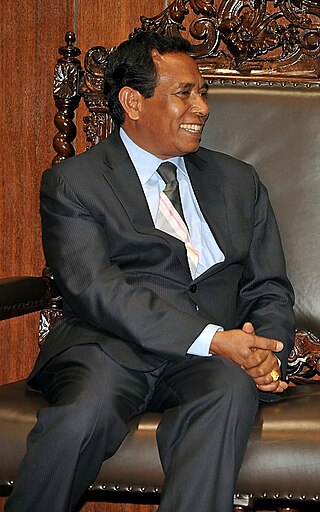
Fernando de Araújo, also known as Lasama was an East Timorese activist and politician. He was a clandestine activist for the independence of East Timor, and then founded the Democratic Party after independence. He was President of the National Parliament of East Timor from 2007 to 2012. He also served as the Acting President for two months in early 2008.

Heleno Cláudio Fragoso was a Brazilian professor of Criminal Law and Criminology.

Aniceto Guterres Lopes is an East Timorese politician and human rights lawyer.
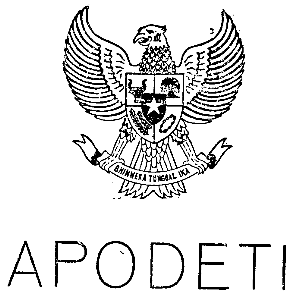
The Timorese Popular Democratic Association was a political party in East Timor established in 1974, which advocated for integration into Indonesia. Along with another East Timor party, the Timorese Democratic Union (UDT), it signed the Balibo Declaration in 1975 calling for Indonesia to annex the region. The party led the Provisional Government of East Timor that was formed following the Indonesian invasion of East Timor 1975. Since 2000, the party used the suffix Pro-Referendo (Pro-referendum). A renaming to Partido Democrata Liberal was considered. The party no longer exists.
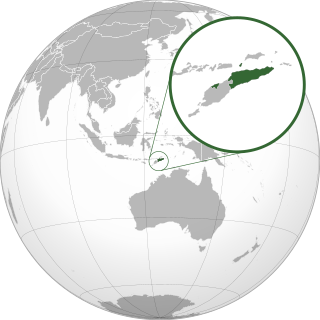
Lesbian, gay, bisexual, and transgender (LGBT) people in East Timor face legal challenges not experienced by non-LGBT residents. Both male and female same-sex sexual activity are legal in East Timor, but same-sex couples and households headed by same-sex couples are not eligible for the same legal protections available to opposite-sex married couples.

Adaljiza Albertina Xavier Reis Magno is an East Timorese politician and diplomat, and a member of the Fretilin political party.
The Network of African National Human Rights Institutions (NANHRI) is one of four regional groupings within the global network, the Global Alliance for National Human Rights Institutions (GANHRI). NANHRI promotes the establishment of national human rights institutions throughout Africa, and supports co-operation and training to strengthen and develop the monitoring, promotion, protection and advocacy work of African NHRIs.

East Timor is a multiparty parliamentary republic with a population of approximately 1.1 million, sharing the island of Timor with Indonesia's Nusa Tenggara province. During the 24 years of Indonesian occupation and after the 1999 independence referendum, pro Indonesian militias committed many human rights violations. The country gained independence in 2002, and free and fair elections were held in 2007. The United Nations Integrated Mission in East Timor (UNMIT) and the International Stabilization Force remain in the country while it develops its own security forces, the National Police (PNTL) and Defence Forces (F-FDTL).
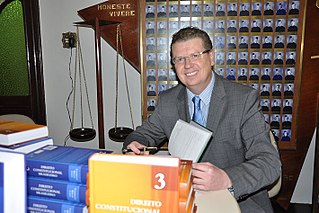
Clèmerson Merlin Clève is a Brazilian jurist, Law school professor, and lawyer.
The Office of the Provedor for Human Rights and Justice, or Provedoria dos Direitos Humanos e Justiça (PDHJ), is the National Human Rights Institution of the Democratic Republic of Timor-Leste. It was established under Section 27 of the Constitution of Timor-Leste in May 2002 and first opened its doors in 2006. The PDHJ has a dual mandate covering human rights and good governance.
Jesuina Maria Ferreira Gomes is Provedor for Human Rights and Justice in the Office of the Provedor for Human Rights and Justice, or Provedoria dos Direitos Humanos e Justiça (PDHJ), in Timor-Leste. She has held this position since October 2018. Prior to that, she served one term as Deputy Provedor.
Horacio de Almeida is Deputy Provedor of Human Rights in the Office of the Provedor for Human Rights and Justice, or Provedoria dos Direitos Humanos e Justiça (PDHJ), in Timor-Leste. He has held this position since January 2015.

Isabel da Costa Ferreira, also Isabel Ruak Ferreira, was an East Timorese jurist, human rights activist, politician, and wife of East Timor's former president and former prime minister, Taur Matan Ruak. She was the First Lady of East Timor from 2012 to 2017. Along with her husband, she was a member of Partidu Libertasaun Popular (PLP).

Dionísio da Costa Babo Soares is an East Timorese politician, and a member of the National Congress for Timorese Reconstruction (CNRT). From June 2018 to May 2020, he was the Minister for Foreign Affairs and Cooperation, under the VIII Constitutional Government of East Timor; he had earlier served as Minister of State, Coordinator of State Administration Affairs and Justice, Minister of State Administration, and Minister of Justice.
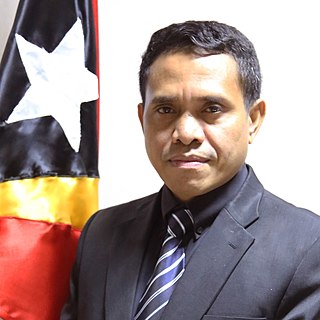
Miguel Pereira de Carvalho is an East Timorese politician and public administrator, and a member of the Fretilin political party.

Mariano Sabino Lopes, also known by his nom de guerreAssanami, is an East Timorese politician and a member of the Democratic Party (PD).
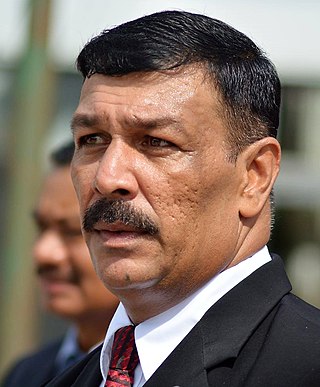
Longuinhos Rabindranatha Tagore Domingues de Castro Monteiro is an East Timorese jurist, administrator and politician. He has held several positions in government, including that of Minister of the Interior in the VI Constitutional Government between 2015 and 2017.
Silverio or Silvério is a surname or given name. Notable people with the name include:













